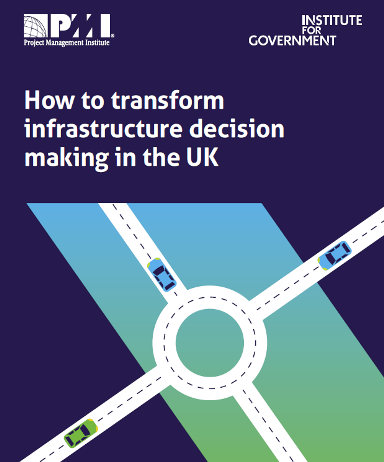- orange gray and white nike men shoes in xxwx 2017
- Кросівки nike air jordan 1 low 'pine green' Raging Bull Toro Bravo 2021 DD0587 - SBD - 600 Release Date - AIR introducing JORDAN
- AR0038 - Air Jordan Super.Fly MVP PF 'White' , 100 - The outsole of the Air Jordan 5 Low Doernbecher Freestyle - JmksportShops
- IetpShops , Air Jordan Fusion 3 (AJF 3) White / Metallic Silver - Maize - Black - Where To Buy The Eastside Golf Air Jordan 1 High
- adidas Samba Sizing: How Do They Fit? , adidas nebzed k eh2542 negras , IetpShops
- air jordan 4 white tech grey black fire red ct8527 100 release date
- Air Jordan 1 Satin Black Toe CD0461 016 2019 Release Date 4
- Travis Scott Air Jordan 1 High OG CD4487 100 Release Date Price
- Nike Blazer Mid 77 Catechu DC9265 101 Release Date
- air jordan spring 2021 retro collection release date info
- Home
- News and analysis
- Info hubs
- Events
- Video
- Case Studies
- About us
- Magazine
- Advertising
Produced for the industry by the Association for Consultancy and Engineering
News
UK infrastructure decision making needs radical overhaul, claims new report

A new Institute for Government (IfG) report has targeted three key aspects of policy to improve infrastructure decision-making in the UK.
Delivering high-quality infrastructure in a timely and cost-effective way is crucial to responding to key national challenges like regional inequalities, productivity, the housing crisis, Brexit and climate change, but the UK consistently makes poor decisions about infrastructure compared with some other wealthy countries, claims the report.
A key reason for this, say the IfG, is the difficulty of striking an appropriate balance between public engagement, expert advice and political leadership. Deciding where to invest limited state resources and which objectives to pursue is inherently political. Yet, infrastructure policy is more likely to be effective if it is evidence-based, long-term and stable. At the same time, the needs of the whole country must be balanced against the negative impact that new infrastructure can have on individual communities.
Over the past year, the IfG has explored how the UK can improve infrastructure policymaking in areas including transport, energy, flood defences, digital communication, waste and water. Its report, How to transform infrastructure decision making in the UK, identifies how competing needs and perspectives can be balanced to improve three vital aspects of infrastructure policy - time, quality and cost.
Time
The government does not have a long-term approach to infrastructure says the report and often fails to make timely decisions on individual projects. Resolving both requires a more structured approach to resolving conflict over infrastructure decisions.
The IfG says that the government should strengthen the National Infrastructure Commission by giving it greater independence as an executive non-departmental public body, draw its commissioners from a more diverse range of professional and geographical backgrounds, engage the public more widely and have its remit extended to include housing.
The institute also wants to see a new Commission for Public Engagement to provide a cost-effective way of giving local communities a genuine opportunity to shape infrastructure decisions, helping to deliver major projects faster and more efficiently.

Quality
The quality of the UK’s infrastructure is not as good as it could or should be, says the IfG and the government needs to pick better projects, both individually and collectively, as a portfolio.
The government needs a cross-government infrastructure strategy, says the institute, that articulates a vision for how the policies and projects of individual departments will interact to achieve infrastructure objectives and explain how the capacity of subnational authorities will be built. In doing so, it must identify the geographic impacts of its recommendations and be written in an accessible way to help facilitate public engagement.
Improving cost benefit analysis is another area that needs to improve, says the IfG. This would better capture the ‘dynamic effects’ of projects, improve the accuracy of project cost and time estimates, take a more consistent approach to assessing projects and better communicate cost benefit analysis results within Whitehall and to the public.
The institute also wants to see parliament improving its scrutiny of infrastructure decisions and says that the Treasury committee should lead this, working closely with other relevant committees.
Cost
The report also says that the UK needs to invest more in economic infrastructure, but this investment cannot come at any cost. Picking the most cost-effective options at every stage - from project selection to finance option - is critical, says the IfG.
Individual government departments must learn lessons from past projects to make better investments in the future. Departments must consistently evaluate infrastructure projects, systematically collecting data on cost outturns against estimates, delivery times against estimates, the size of project teams and project length.
To ensure that data is collected and used, the Infrastructure and Projects Authority should collate this information centrally and mandate that it is used by departments to enhance cost estimates.
The government also needs to improve its approach to accounting, appraisal and budgeting to increase the odds of picking the best finance options, say the institute. This is particularly important in light of the recent collapse of Carillion and the questions it has raised about private finance deals.
Finally, the report calls on the government to up its game in terms of private finance to meet its objective of securing more private investment in infrastructure at a good price. Civil servants need to have access to sufficient in-house commercial skills and ministers need to understand investor perspectives better before making policy.
In addition, the Infrastructure and Projects Authority must outline a clear infrastructure project pipeline that provides investors with clarity on which projects will require private finance, how much investment is needed, and how the deals will be structured.
Click here to download the report, How to transform infrastructure decision making in the UK.





